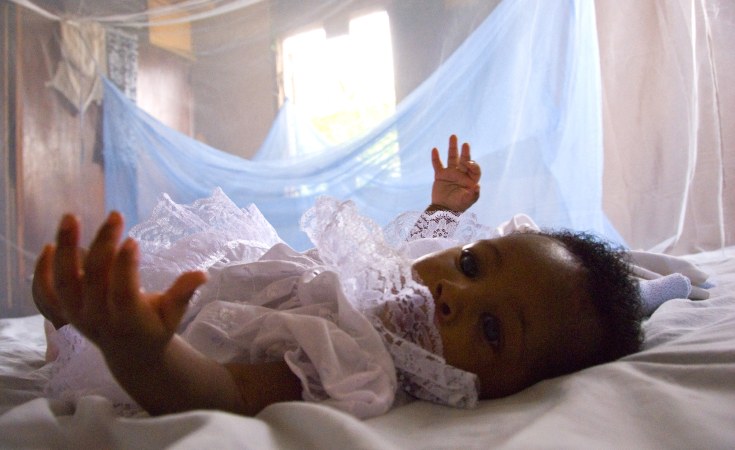More people in some of the world's poorest communities will have access to quality health products such as top of the line mosquito nets, thanks to a new financial mechanism launched on Tuesday.
The so-called Revolving Facility is an initiative of the Global Fund to Fight AIDS, Tuberculosis and Malaria, a UN partner that invests $4 billion annually to stamp out these deadly diseases and strengthen health systems in more than 100 countries.
The Revolving Facility will negotiate improved supply terms for health products using advanced market commitments, including volume guarantees, to drive more affordable access and innovations at greater scale.
Saving more lives
The Global Fund will use it "to play an even more strategic role in shaping the global supply of life-saving HIV, TB and malaria products - to save lives and increase equitable access," said Executive Director, Peter Sands.
"This mechanism will also help us move even more swiftly in response to future health crises, including pandemics," he added.
The Revolving Facility was established with an initial commitment of $100 million from the Bill & Melinda Gates Foundation.
The first agreement will be with Swiss company Vestergaard for its new dual active ingredient (Dual AI) insecticide-treated mosquito nets, which are more effective against insecticide-resistant mosquitoes than conventional nets.
Malaria control gains at risk
Insecticide-treated nets are a key tool in the fight against malaria, which is spread by some types of mosquitos. Nets treated with pyrethroid insecticide have been widely used since the 1990s and have underpinned global achievements in malaria control to date.
However, some mosquito populations have developed resistance to these chemicals, especially in sub-Saharan Africa where most malaria cases occur. This is reducing the effectiveness of insecticide-treated nets and putting hard won gains in malaria control at risk.
Expanding net coverage
In March, the World Health Organization (WHO) issued new guidelines for the use of Dual AI nets. This included a strong recommendation for deploying pyrethroid-chlorfenapyr nets to prevent malaria in adults and children in areas where mosquitoes have become resistant to pyrethroids.
By implementing an innovative operating model, the Global Fund aims to secure sustainable prices for Dual AI nets comparable to existing models, thus making it possible for countries to expand coverage despite constrained budgets.
"The agreement through the Revolving Facility has the potential to ensure that every child, in every community, has the best protection possible against malaria, a disease that kills a child every minute of every day," said Olivia Ngou, Executive Director of Impact Santé Afrique, a non-governmental organization supported by the Global Fund.
"Much more work needs to be done to ensure communities have access to malaria prevention and treatment, but continued innovation in mosquito nets and other tools will ensure that the world will continue to make progress against this deadly disease."


